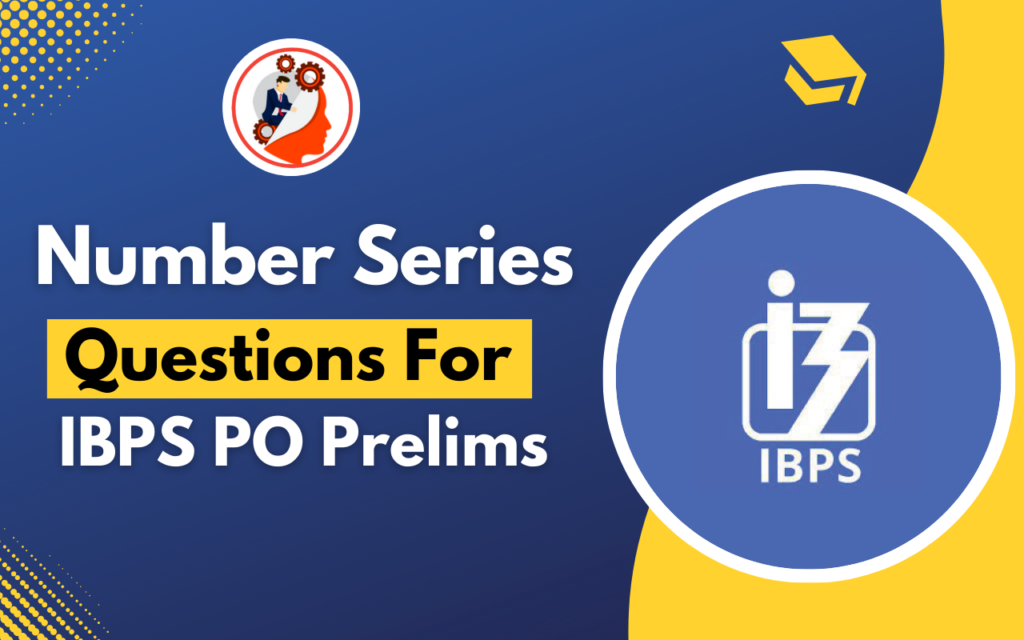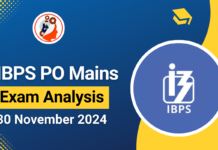Table of Contents
Number Series Questions for IBPS PO 2024
Number Series For IBPS PO Prelims 2024: The number series is an important topic and requires a lot of practice because the series can follow any logic hence you must do the rigorous practice of this topic to ace this.
This topic comes in both prelims and mains examination and carries a lot of weightage in the examination. In prelims, this topic carries 5 questions for 5 marks; in mains, you can also get these questions for 4 marks. Considering the importance of this topic we will be covering it in this article. Make sure you read it well and understand the concept.
Earlier, number series were asked in the form of the missing number.But, seeing some recent exams, it has been found that the latest pattern of number series is to identify wrong numbers given in the series. In this article, we will discuss this latest pattern.This latest pattern is nothing but an advanced pattern of missing numbers.
Number Series Questions for IBPS PO
In the IBPS PO exam, number series questions can vary in complexity and the types of patterns they present. Here are some common types of number series that are frequently asked in IBPS PO exams:
These questions test a candidate’s ability to identify missing or incorrect numbers within a sequence of numbers that follows a specific pattern such as AP, GP, or arithmetic series. To solve these questions, candidates need to identify the pattern in the given sequence and apply it to predict the next number or deduce missing numbers accurately. Smartkeeda offers a variety of practice sets to help candidates improve their pattern recognition skills and save time in the exam.
Type of Number Series Asked in IBPS PO
Arithmetic Progression (AP):
In an arithmetic progression, each term is obtained by adding a fixed number (called the common difference) to the previous term. For example:
2, 5, 8, 11, 14, …
Here, the common difference is 3.
Geometric Progression (GP):
In a geometric progression, each term is obtained by multiplying the previous term by a fixed number (called the common ratio). For example:
2, 6, 18, 54, 162, …
Here, the common ratio is 3.
Square Series:
In a square series, each term is a perfect square. For example:
1, 4, 9, 16, 25, …
Here, each term is the square of its position in the series.
Cube Series:
In a cube series, each term is a perfect cube. For example:
1, 8, 27, 64, 125, …
Here, each term is the cube of its position in the series.
Prime Number Series:
In a prime number series, each term is a prime number. For example:
2, 3, 5, 7, 11, 13, …
Here, each term is a prime number, which means it is divisible only by 1 and itself.
Fibonacci Series:
In a Fibonacci series, each term (starting from the third term) is the sum of the two preceding terms. For example:
0, 1, 1, 2, 3, 5, 8, 13, …
Here, each term (starting from the third term) is the sum of the previous two terms.
Mixed Series:
Some number series questions may involve a combination of different patterns within the same sequence. These could include alternating arithmetic and geometric progressions, or other complex patterns.
Expected Number Series For IBPS PO Prelims
We are providing You curated collection of Number Series Questions in PDF format. This resource aims to help you strengthen your problem-solving skills, understand various patterns, and excel in this section of the IBPS PO exam.
| Number Series Questions For IBPS PO | PDF Download Link |
|---|---|
| Wrong Number Series Questions With Solutions PDF | Click Here |
| Missing Number Series Questions With Solutions PDF | Will be Updated Soon. |
FAQs
What strategies can I use to solve number series questions efficiently?
Some strategies for solving number series questions efficiently include:
Identifying the type of series (AP, GP, etc.)
Analyzing differences or ratios between consecutive terms.
Looking for multiple patterns within the same sequence.
Using backward and forward logic.
Checking for alternative operations or mathematical functions.
Why are number series questions important in the IBPS PO exam?
Number series questions assess a candidate’s ability to recognize patterns, sequences, and logical relationships among numbers. This skill is crucial for banking professionals who often deal with numerical data and calculations in their day-to-day work.
Number Series Asked in IBPS PO Prelims 2023
Missing Number Series Question Has asked in IBPS PO Prelims 2023













